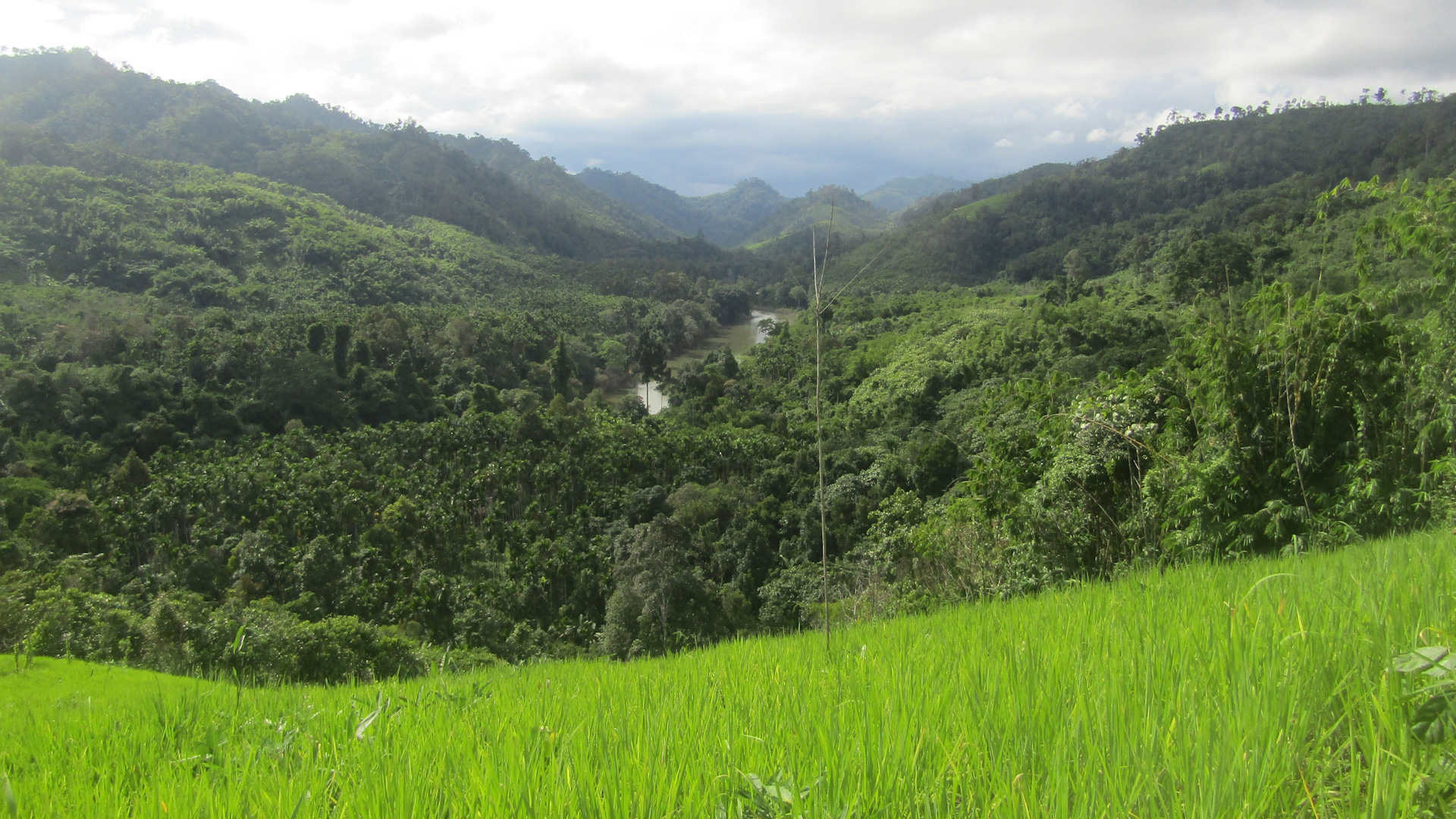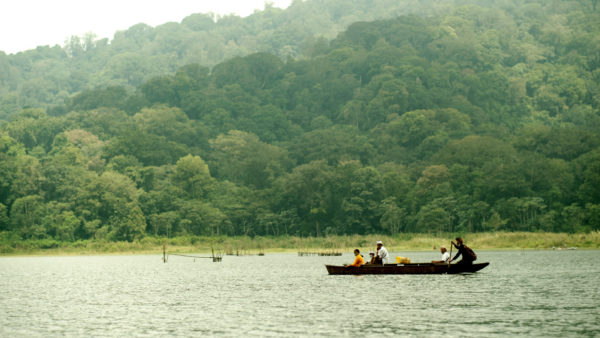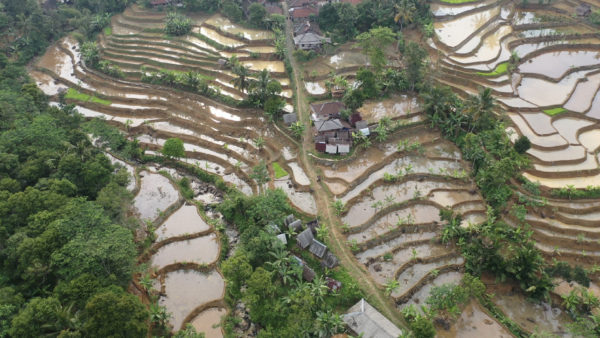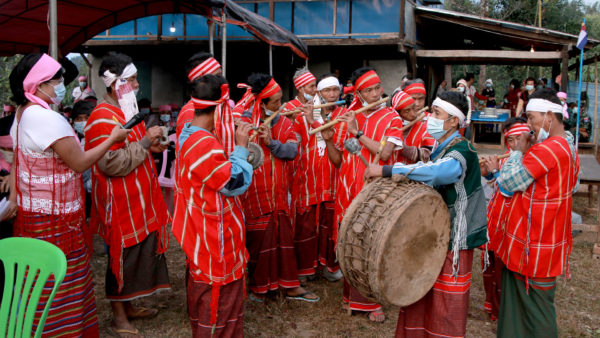Karen communities see physical health of humans and the health of the environment as being entwined and interconnected. Destruction of the forest or water systems can cause illness to the community, as spirits are disturbed. For this reason, Indigenous communities take much care in the protection of their territory
First published on 09/25/2023, and last updated on 11/13/2023
By Esther Wah (Karen), Secretary, All Burma Indigenous Peoples Alliance (ABIPA)
Note: This article is from the recently published report “Celebrating territories of life in Southeast Asia.” The text has been edited for the ICCA Consortium website.
Paw Klo is a Karen territory located in Dawei District of Tanintharyi Region, Myanmar’s southernmost region. The area is home to 16,000 Karen Indigenous People who depend on orchard farming and forest-based livelihoods, and vast areas of pristine evergreen forest containing extensive endemic and vulnerable flora and fauna, including Malaysian sun bears, clouded leopards and tigers.
The Paw Klo forest makes up an important part of Tanintharyi Region’s landscape of life, part of one of Southeast Asia’s biggest expanses of low elevation evergreen forest. The territory has been managed for millennia by Karen communities who have cared for this landscape, conserving its resources and protecting it from outside incursions.
Like the Salween Peace Park in northern Karen State, Paw Klo is a community driven initiative which strives to conserve natural heritage in line with local livelihoods, culture and sovereignty. While the central Myanmar government does not recognize this territory, seeing it as virgin land open for development, communities throughout the territory have worked hard to conserve, protect and defend it from a range of different threats, and the area is locally recognized as an ICCA. The Karen National Union recognizes the territory, and supports local communities in their efforts to conserve the area.
At the northern edge of Paw Klo stands Kaser Doh, a sacred mountain for the Karen, and a site of significant natural wonder and beauty. The mountain comprises an important part of Karen cosmologies and beliefs, and has been jointly managed and protected by Indigenous communities and the Karen National Union for decades.
The territory is widely known for its herbal medicines and traditional healers who are famous across Kawthoolei. Communities have identified over 245 different types of herbal medicine, and regularly go on week-long medicinal walks where communities drink and bathe in herbal medicines. Members of the community say that many people live to over 100 years old because of these herbal medicines.
Karen communities see physical health of humans and the health of the environment as being entwined and interconnected. Destruction of the forest or water systems can cause illness to the community, as spirits are disturbed. For this reason, Indigenous communities take much care in the protection of their territory.
There are different types of forest over Paw Klo. While some forests are used for local livelihoods such as shifting cultivation, in community managed forests, watershed forests, and medicinal herb forests, communities enforce tight restrictions over resource use. In these areas it is forbidden for community members to clear the forest, establish agriculture or start fires. Furthermore, villagers refrain from cutting trees around lakes and rivers. As a result of these local management systems, the territory continues to boast rich and deep forests.
Indigenous Karen communities in Paw Klo have managed and conserved the biodiversity in their territory through traditional knowledge and governance systems. They have formed community-based organizations through which rules and regulations are developed and enforced. Local forest committees sustain biodiversity by monitoring forests and resource use in the area. Research committees conduct local knowledge research of forest resources, and forest and water committees are responsible for enforcing democratically developed rules and regulations. Apart from the medicinal herbs, the local research committee has also identified over 70 fish species and 188 forest vegetables. Local knowledge research exhibits the depth of local ecological knowledge of forest resources and the vast number of locally found products that communities use for health and sustenance.
Communities in Paw Klo manage water resources across the territory carefully. Through local ceremonies and institutions, communities have established over fifteen fish sanctuaries in rivers and streams. In these areas, which are often fish breeding grounds, community members are prohibited to catch fish for personal use and to use motor engines. As a result, there are large fish populations in rivers and streams. According to local communities, this also reflects clean water and a healthy forest.
In 2010, however, Myanmar and Thai companies were awarded a 2,100-acre mining permit to extract lignite coal from the northern expanses of the territory. The project stood to destroy vast tracts of rich forest, grab lands of communities from three villages, and pollute the primary water source of over 16,000 people. In 2012 the companies began operations on 64 acres of open-pit mine located on ancestral land, causing significant problems for surrounding communities.
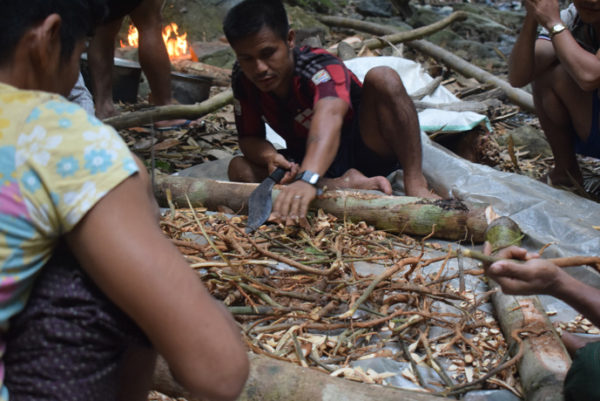
Communities in the area mobilized and campaigned tirelessly to halt the mining project in their territory. Together, the community formed committees, held local campaigns, conducted research on their resources and worked with lawyers and civil society organizations to halt the project. In 2017, following the submission of complaints to Regional Government, the project was suspended and the primary investor subsequently filed for bankruptcy and faced criminal proceedings for fraud in Thailand.
This is a story that shows the strength of united Indigenous communities winning a battle against global financial institutions and dirty climate change-causing industries. However, while this mega-mining project was suspended, communities continue to suffer from the effects of its operations, such as leaching waste piles and destruction of water sources. They live in fear that the project will someday be restarted, so they remain vigilant and continue their struggle to permanently terminate the operation.
On February 1, 2021, a military coup triggered a resurgence of violent conflict, and now Indigenous territories across Myanmar face uncertain futures. Like many other Karen territories, Paw Klo has been subject to decades of armed conflict in which communities were forced to flee their homes to the forest and the border. Periods of armed conflict are often proceeded by land confiscations and the granting of land concessions to extractive companies. Communities fear that new oil palm, mining and infrastructure projects may come to the territory and harm the lands, forests and communities that they have long fought to protect.
Despite these insurmountable threats Indigenous communities throughout Tanintharyi Region pledge that they will fight until the end of the world to protect their ancestral forests and lands. Despite the changing political situation communities continue to monitor their forests, enforce their rules and regulations, and defend the biodiversity of their lands from new threats. Indigenous communities from across Myanmar have become united over the past years, and stand in solidarity as the military brings more threats to their lands and lives. Together, they are committed to winning their cause.
